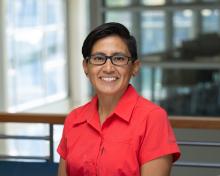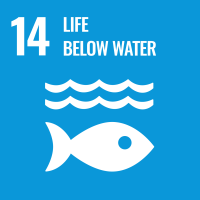
About Ana Celis
Pronouns: she/her/hers
Country: Mexico
Ana K. Celis holds a bachelor’s degree in Archaeology from Universidad Veracruzana, and a master’s degree in Coastal Oceanography from Universidad Autónoma de Baja California, México.
As a short-term fellow at Smithsonian in Panama, she developed a strong sense of commitment to create positive social impacts through her profession. For the last seven years, she has worked for nonprofits, government agencies and the private sector in the areas of subterranean ecosystem conservation, cave archaeology and groundwater quality monitoring. Ana currently serves as director and founder of Karst Lab México. She coordinates local capacity-building projects and provides consultancy services for ecosystems conservation and sustainable development in indigenous and urban-sprawl communities. Since 2022, she has collaborated with Western Kentucky University and Mammoth Cave National Park to strengthen U.S.-México partnerships in Cave and Karst Science.
Ana is also a Professor at Universidad del Caribe, working to reduce the gender gap in STEM for marine science. She leads an in-water scientific training program empowering female students to pursue careers in the water sciences. Her current research in this field addresses the role of women in diving jobs in México.
As a Humphrey Fellow at UC Davis, Ana expects to broaden her network and exchange expertise and knowledge with U.S. partners about coastal and groundwater resource management and the best practices to reduce the gender gaps in science.
Available to Speak About
- Natural and Cultural Heritage Conservation
- Environmental studies in Caves and Karst terrains
- Groundwater, underground landscapes and human societies
- Working in the world's longest drowned cave: Tulum, Mexico
- Underwater Archaeology: the case of the caves of the Yucatan Peninsula, Mexico
- Scientific diving and the importance of diving and scientific diving skills for undergraduate and graduate professionals
- Archaeology and biocultural heritage
Related SDGs
